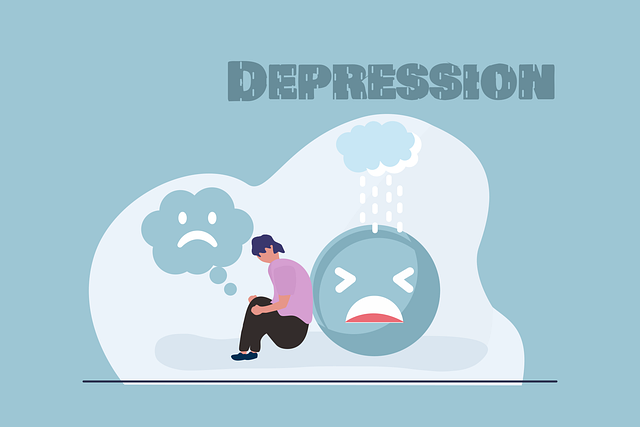Mental health professionals navigating complex client cases, including trauma and suicide ideation, face unique risks like burnout. Lakewood Suicide Prevention Therapy emphasizes risk assessment tools that identify both client vulnerabilities and therapist stressors. Using advanced techniques, open communication, and personalized support, therapists create secure environments. Continuous training through workshops equips professionals with skills to recognize and address suicidal ideation effectively. Lakewood Suicide Prevention Therapy promotes holistic care, fostering mental wellness within the profession.
Mental health professionals face unique challenges, with risk assessment being a critical component of their practice. This article explores essential strategies for navigating potential hazards within the field, focusing on client-related risks and suicide prevention. We delve into understanding the specific risks in mental health practice, implementing robust assessment tools, and providing effective mitigation techniques. Additionally, continuous training and professional development are emphasised as key to fostering a safer therapeutic environment, particularly in Lakewood Suicide Prevention Therapy contexts.
- Understanding the Unique Risks in Mental Health Practice
- Implementing Comprehensive Risk Assessment Tools and Techniques
- Strategies for Mitigating and Managing Client-Related Risks
- Continuous Training and Professional Development for Suicide Prevention
Understanding the Unique Risks in Mental Health Practice

Mental health professionals often find themselves navigating complex emotional landscapes with their clients, which inherently carries unique risks. Unlike other therapeutic settings, the nature of mental health work demands a deep exploration of sensitive topics such as trauma, suicide ideation, and severe psychiatric disorders. Professionals in this field are not only exposed to intense emotions but also have the profound responsibility of guiding vulnerable individuals towards recovery. This delicate balance requires a keen awareness of one’s own emotional boundaries and potential triggers, which is essential for maintaining professional integrity and preventing burnout.
The pressures of this practice extend beyond the therapeutic relationship, impacting professionals’ mental wellness and overall well-being. Long hours, high caseloads, and the constant exposure to distressing narratives can contribute to significant stress management challenges. Therefore, effective risk assessment in mental health settings should encompass not only identifying client risks but also addressing the unique stressors faced by therapists themselves. Incorporating strategies for self-care, supervision, and peer support is vital, as it enables professionals to provide the best care while mitigating potential risks associated with this essential yet demanding work, including those that might be mitigated through services like Lakewood Suicide Prevention Therapy, emphasizing Mental Health Awareness and promoting Mental Wellness.
Implementing Comprehensive Risk Assessment Tools and Techniques

Implementing Comprehensive Risk Assessment Tools and Techniques is an essential step for mental health professionals to ensure effective patient care and personal well-being, especially in high-risk areas like Lakewood Suicide Prevention Therapy. These tools are designed to go beyond surface-level evaluations, delving into intricate aspects of a client’s psychological state, social environment, and potential triggers. By employing such methods, therapists can uncover hidden vulnerabilities and develop tailored interventions.
Regular use of these assessment techniques promotes Self-Awareness Exercises, enabling professionals to recognize early warning signs of burnout prevention and resilience building. This proactive approach not only enhances clinical practice but also fosters a supportive work environment, where colleagues can monitor each other’s well-being, ultimately reducing the risk of professional exhaustion and improving overall mental health within the field.
Strategies for Mitigating and Managing Client-Related Risks

Mental health professionals are entrusted with the care and well-being of their clients, which comes with a significant level of responsibility. To mitigate risks associated with client interactions, several strategic approaches can be employed. One key method is to implement robust risk assessment tools that identify potential hazards early on. This includes evaluating clients’ history, current mental state, and any previous suicide attempts or self-harming behaviours, as these are critical indicators for suicidal ideation and other high-risk scenarios.
Additionally, fostering an environment of open communication encourages clients to disclose relevant information about their well-being. Training professionals in compassion cultivation practices and mind over matter principles can enhance their ability to connect with clients, build trust, and support them through challenging emotions. Further, trauma support services tailored to individual needs can be life-changing, helping clients process and manage traumatic experiences that may underlie their mental health struggles. By combining these strategies, Lakewood Suicide Prevention Therapy aims to create a safe space for individuals seeking help, ensuring professionals are equipped to navigate complex client-related risks effectively.
Continuous Training and Professional Development for Suicide Prevention

Mental health professionals are entrusted with saving lives, including those at risk of suicide. Therefore, continuous training and professional development in suicide prevention are paramount. Regular workshops and seminars focused on Lakewood Suicide Prevention Therapy equip therapists with updated knowledge and skills to identify suicidal ideation early and provide effective interventions. These sessions delve into evidence-based strategies such as Compassion Cultivation Practices, which foster a deeper understanding of human suffering and promote compassionate responses. Additionally, Conflict Resolution Techniques and Mindfulness Meditation are integrated into training to enhance emotional regulation and improve therapeutic relationships.
Through ongoing education, professionals can navigate the complexities of suicidal behavior more effectively. They gain insights into cultural nuances that may influence suicide risk, learn innovative counseling approaches, and stay abreast of research findings. This commitment to professional growth ensures that therapists in Lakewood and beyond are well-equipped to offer compassionate, life-saving support to those in crisis.
Mental health professionals play a crucial role in identifying and mitigating risks, ensuring client safety, and fostering positive outcomes. By understanding unique practice-related risks, employing robust risk assessment tools, implementing effective strategies for client management, and engaging in continuous training, therapists can enhance their capabilities in preventing suicide. Incorporating these measures, such as those advocated by Lakewood Suicide Prevention Therapy, is essential to creating a supportive environment that prioritizes both therapist well-being and client recovery.














